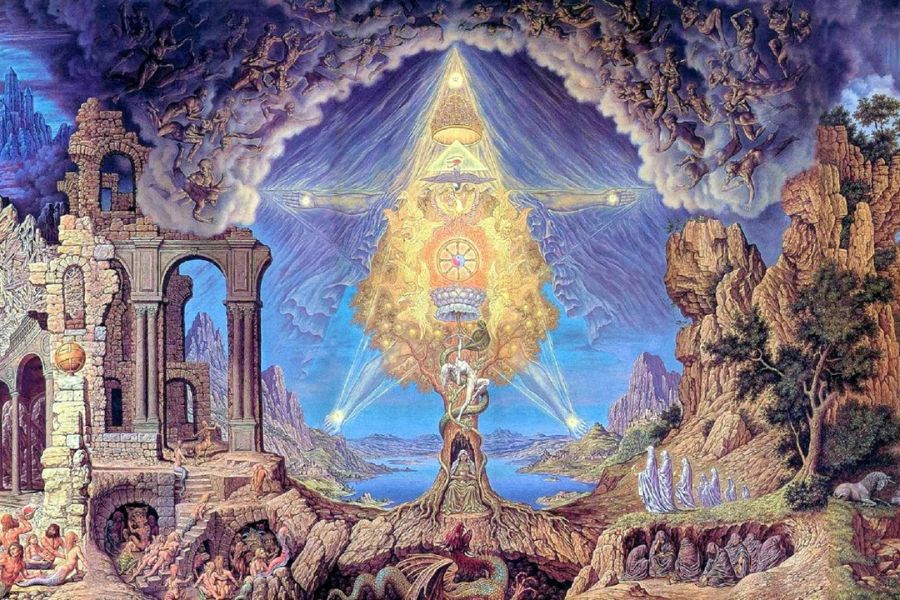The erroneous belief that painfully conditions all beings in cyclic existence arises from ignorance. This ignorance is a lack of awareness regarding the true emptiness of the mind and its productions.
In essence, a mistaken belief is the failure to perceive the true mode of existence of all things.
Everything—every particularity, every object of knowledge, the external universe, and all sentient beings—manifests through the power of mental tendencies, which are essentially empty. All that we experience in terms of forms, sounds, tastes, smells, tangible objects, and objects of mental consciousness originates from the mind's conditioned projections.
Kalu Rinpoche's teachings emphasize that the mind does not inherently exist nor is it entirely nonexistent. Similarly, the perceptions it produces are neither completely illusory nor entirely real. As we normally experience them, they hold a relative reality, but from an absolute perspective, this relative reality is an illusion.
All phenomena can be understood through two levels of reality: the relative (or conventional) and the absolute (or ultimate). These two truths correspond to two perspectives on existence. The relative truth, though conventionally valid, is ultimately illusory, whereas the absolute truth is definitively real—an authentic experience beyond all illusion.
Samsaric perceptions are experiences within the realm of relative truth, while Nirvana, which transcends illusion and suffering, exists at the level of absolute truth. For instance, a being in a hell realm genuinely experiences suffering from a relative standpoint; their pain is real within that context. However, from an absolute perspective, hell does not exist—it is merely a projection, a conditioned mental fabrication whose nature is emptiness.
Suffering arises from the failure to recognize the emptiness of things, leading us to attribute reality to that which ultimately lacks it. This attachment to perceived reality subjects us to painful experiences.
A useful analogy for this concept is a dream. When someone has a nightmare, they suffer. To the dreamer, the nightmare is real; in that moment, it is the only reality they know. However, the dream has no tangible existence beyond the conditioned mind of the dreamer—it is an illusory manifestation of their own karma. From an ultimate viewpoint, it does not truly exist. The dreamer's illusion lies in failing to recognize the nature of their experiences. Mistaking their own mental projections for an autonomous reality, they become frightened by their own creations, thus generating suffering.
Illusion is the misperception of reality—believing something to be real when it is not. Buddha Shakyamuni taught that all realms of cyclic existence, all things, and all experiences are, in essence, illusory appearances that cannot be classified as either truly real or entirely false. To illustrate this dual nature, he used the example of the moon's reflection on the surface of water:
The nature of all things and all appearances is like the reflection of the moon on water.
The reflected moon appears real as long as it is visible on the water's surface, but its reality is only a relative appearance, an illusion, because it is merely a reflection. It is neither completely real nor entirely non-existent. In this sense, relative truth can be understood as the truth of appearances.
Buddha Shakyamuni used other metaphors to describe this nature of reality, likening all phenomena to projections, hallucinations, rainbows, shadows, mirages, reflections in a mirror, and echoes. Apart from the mere appearance resulting from the interdependence of various factors, nothing possesses an inherent, independent existence.
Understanding this principle can be profoundly transformative, as our suffering stems from clinging to things as though they were real. The ultimate purpose of the Buddha's teachings is to dissolve this fixation, which is the root of all illusions and is as persistent as our karmic conditioning. By recognizing the true nature of reality, we begin to free ourselves from suffering and move toward genuine liberation.




















